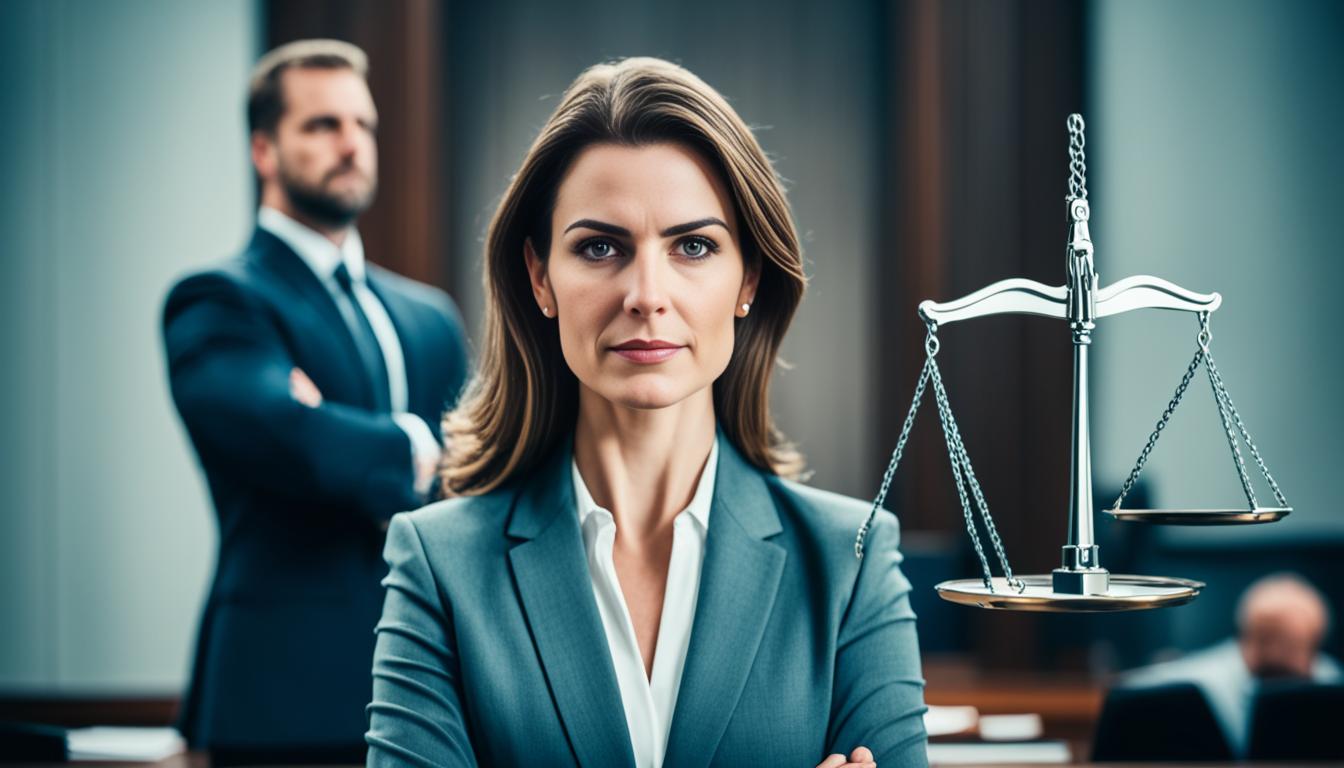Navigating the complex world of criminal law can be daunting, but building a solid criminal defense is crucial for defendants facing criminal charges. This article will provide you with valuable insights and practical strategies to help you protect your rights and achieve the best possible outcome in your case.
Criminal law defense involves understanding the intricacies of the criminal justice system, selecting the right legal representation, and developing an effective defense strategy. Whether you’re facing criminal charges, dealing with criminal court proceedings, or navigating the criminal investigations process, this article will equip you with the knowledge and tools necessary to defend yourself against criminal offenses and criminal records.
Key topics covered in this article include the importance of legal counsel, the discovery process, crafting a comprehensive defense strategy, navigating courtroom tactics, understanding plea bargaining options, and exploring the appeals process. By the end of this article, you’ll have a better understanding of the criminal law defense landscape and be empowered to take the necessary steps to protect your rights and achieve the best possible outcome in your criminal charges.
Key Takeaways
- Building a solid criminal defense is crucial for defendants facing criminal charges.
- Understanding the complexities of the criminal justice system is essential for developing an effective defense strategy.
- Selecting the right legal representation is a key factor in achieving the best possible outcome in a criminal case.
- The discovery process and access to evidence are critical components of a comprehensive defense.
- Navigating courtroom tactics, including jury selection and witness cross-examination, can significantly impact the outcome of a trial.
Understanding the Criminal Justice System
As you navigate the complex criminal justice system, it’s essential to develop a solid understanding of its key components. This section will explore the legal landscape, including the roles of law enforcement, prosecutors, and the courts. By grasping the intricacies of the system, you can better prepare your criminal law defense and protect your rights.
Navigating the Legal Landscape
The criminal justice system involves a complex network of law enforcement agencies, prosecutors, and the courts. Law enforcement officers are responsible for investigating criminal activities and gathering evidence. Prosecutors then evaluate the evidence and decide whether to bring criminal charges against an individual. If charges are filed, the case will proceed to the criminal court system, where a judge and potentially a jury will determine the outcome.
Common Mistakes to Avoid
When facing criminal charges, it’s crucial to avoid common missteps that can jeopardize your defense. Disclosing information about your case on social media, speaking to the police without an attorney present, and failing to maintain professionalism in court are all actions that can have serious consequences. By being mindful of these pitfalls, you can navigate the criminal justice system more effectively and avoid potentially damaging actions.
The Importance of Legal Representation
When facing criminal charges, one of the most critical decisions a defendant can make is securing skilled legal representation. Retaining an experienced criminal defense attorney is essential, as they can provide invaluable guidance, protect your rights, and develop an effective defense strategy tailored to your unique circumstances.
Selecting the Right Criminal Defense Attorney
Choosing the right criminal defense attorney can make a significant difference in the outcome of your case. Key factors to consider when selecting a lawyer include their communication skills, commitment to your case, and overall legal abilities. It’s important to thoroughly research potential attorneys, checking their credentials, trial experience, and success rates in handling cases similar to yours.
Building a Trusting Attorney-Client Relationship
Establishing a strong attorney-client relationship is crucial for developing an effective legal counsel. Open and honest communication with your attorney is vital, as they need to understand the details of your case, your goals, and any concerns you may have. By building a relationship of trust and transparency, you can work together to navigate the complexities of the criminal justice system and achieve the best possible outcome for your criminal charges.
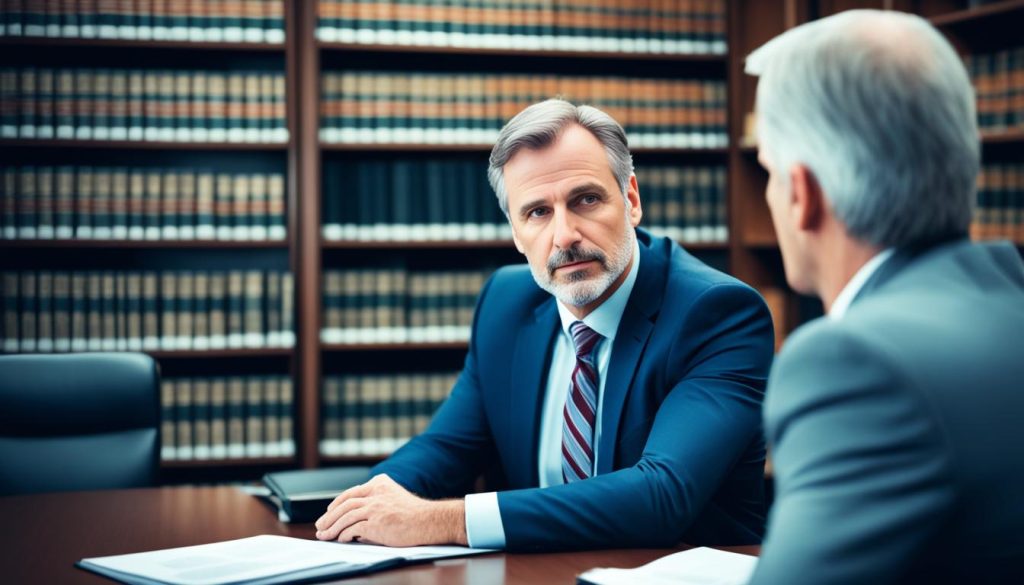
The Discovery Process
The discovery process is a pivotal aspect of building an effective criminal defense strategy. This phase involves accessing crucial evidence, such as police reports and witness statements, that can ultimately shape the course of your case. By thoroughly understanding the discovery process, you can ensure that your legal team has all the necessary materials to develop a comprehensive defense.
Accessing Police Reports and Evidence
One of the first steps in the discovery process is obtaining copies of the police reports and other evidence gathered during the criminal investigation. Your criminal defense attorney will work diligently to request and review this information, which may include witness statements, forensic analysis, and any physical evidence collected at the scene. This thorough review of the evidence is essential for identifying potential weaknesses in the prosecution’s case and developing your own defense strategy.
Exculpatory and Impeachment Evidence
As you navigate the discovery process, it is crucial to pay close attention to two key types of evidence: exculpatory and impeachment evidence. Exculpatory evidence is any information that tends to negate your guilt or mitigate the charges against you. This could include alibi witnesses, alternative theories, or evidence that casts doubt on the prosecution’s case. Impeachment evidence, on the other hand, is information that can be used to challenge the credibility or reliability of the prosecution’s witnesses. Your attorney will work tirelessly to identify and obtain this crucial evidence, as it can significantly strengthen your defense.
By thoroughly understanding the discovery process and actively participating in the collection and review of all relevant evidence, you can empower your legal team to build a robust and compelling defense. This comprehensive approach can be the difference between a successful outcome and a devastating conviction.
Developing a Defense Strategy
Crafting an effective defense strategy is crucial for defendants facing criminal charges. This section delves into the various tactics that can be employed, including challenging the prosecution’s evidence, presenting alternative theories of the case, and utilizing expert witnesses.
Challenging the Prosecution’s Evidence
A key component of a strong criminal defense is scrutinizing the prosecution’s evidence and finding weaknesses or inconsistencies. Your attorney will meticulously examine police reports, witness statements, and forensic evidence to identify any flaws or gaps that could undermine the prosecution’s case. By discrediting the prosecution’s evidence, you can create reasonable doubt in the minds of the jury, increasing your chances of a favorable outcome.
Presenting Alternative Theories
In addition to challenging the prosecution’s evidence, your defense strategy may involve presenting alternative theories of the events that led to the criminal charges. Your attorney will work to develop plausible explanations that paint a different picture of the incident, potentially shedding doubt on the prosecution’s narrative. By offering alternative theories supported by evidence, you can provide the jury with a compelling alternative to the prosecution’s case.
Utilizing Expert Witnesses
The strategic use of expert witnesses can be a powerful tool in your criminal defense. These experts, who have specialized knowledge or expertise in relevant fields, can provide valuable testimony that challenges the prosecution’s evidence or supports your alternative theories. For example, forensic experts may be able to cast doubt on the reliability of physical evidence, while medical experts could offer alternative explanations for certain injuries or events. By leveraging the expertise of expert witnesses, you can strengthen your defense strategy and increase your chances of a favorable outcome.
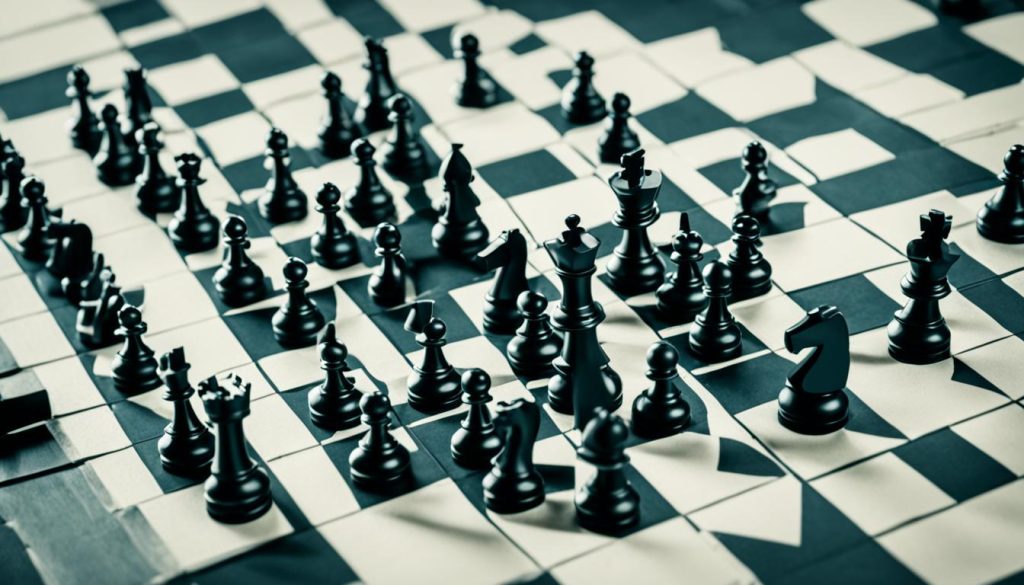
Criminal Law Defense
Navigating the intricacies of criminal law defense is crucial for defendants facing criminal charges. At the heart of this process is the fundamental principle of the prosecution’s burden of proof. The law requires the prosecution to prove the defendant’s guilt beyond a reasonable doubt, a high legal standard that can be effectively challenged through strategic cross-examination of witnesses.
Burden of Proof and Reasonable Doubt
The burden of proof in a criminal case rests squarely on the prosecution’s shoulders. They must present a compelling case that leaves no reasonable doubt in the minds of the jury. By understanding this principle, defendants can work to undermine the prosecution’s evidence and create reasonable doubt through various defense tactics.
Cross-Examining Witnesses
A key component of an effective criminal law defense is the ability to cross-examine the prosecution’s witnesses effectively. By carefully scrutinizing their testimony and uncovering inconsistencies, contradictions, or potential biases, defendants can work to discredit the prosecution’s case and cast doubt on the reliability of the witness testimony. This strategic approach can be a powerful tool in securing a favorable outcome.
Courtroom Tactics
Navigating the courtroom effectively is a critical component of a successful criminal defense. Employing the right courtroom tactics can significantly improve your chances of achieving a favorable outcome. Two key areas to focus on are jury selection and managing the courtroom environment.
Jury Selection
The composition of the jury can make or break your case. Carefully selecting impartial and open-minded jurors is essential to your trial strategy. Work closely with your criminal defense attorney to thoroughly vet potential jurors, identifying and screening out those who may harbor biases or preconceptions that could undermine your defense.
Managing the Courtroom
Projecting a confident and professional demeanor in the courtroom can have a powerful impact on the proceedings. Maintain a courtroom management approach that demonstrates your commitment to the case and your respect for the criminal justice system. Engage with the judge, prosecutors, and witnesses in a manner that commands attention and conveys your competence, ultimately influencing the jury’s perception of your criminal defense.
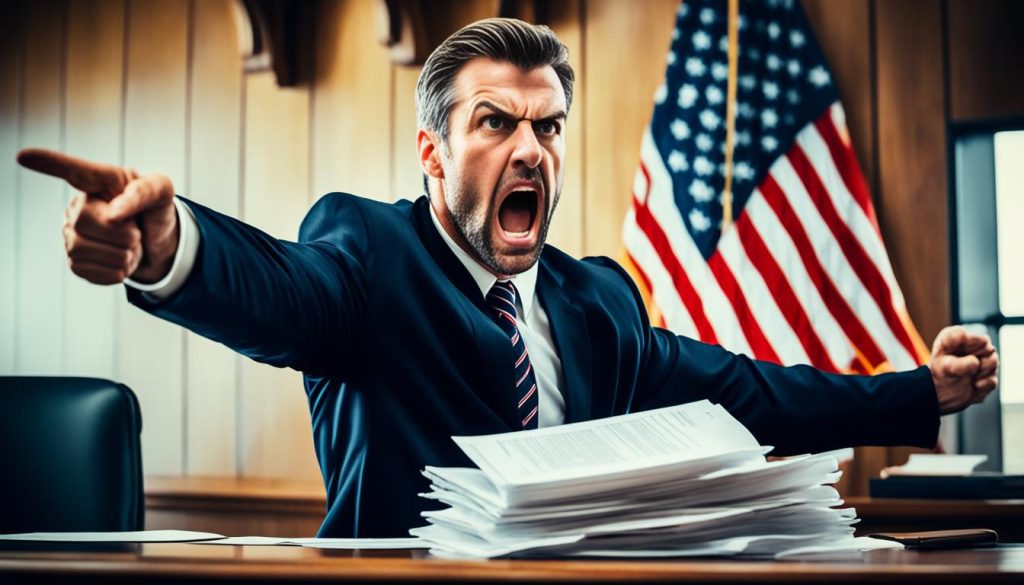
Plea Bargaining and Alternative Sentencing
In some criminal cases, plea bargaining and alternative sentencing options may present the best path forward for defendants. This section explores the process of negotiating with the prosecution and the potential benefits of exploring plea deals, which could result in reduced charges or alternative sentencing options like probation or community service.
Negotiating with the Prosecution
Plea bargaining involves a negotiation between the defendant and the prosecution, where the two parties work to reach an agreement on the charges and sentencing. By engaging in this process, you may be able to secure more favorable terms, such as reduced charges or a lighter sentence. However, it’s crucial to weigh the risks and benefits carefully, as accepting a plea deal may limit your ability to challenge the case at a later stage.
Exploring Plea Deals
Plea deals can provide an opportunity to avoid the uncertainty and potential severity of a trial outcome. In some cases, you may be able to plead guilty to a lesser charge, resulting in a reduced sentence or alternative sentencing options. These alternatives, such as probation or community service, can allow you to avoid incarceration and potentially minimize the long-term impact of a criminal conviction on your life.
By carefully considering the plea bargaining process and exploring plea deals, you can make an informed decision about the best course of action for your criminal case, balancing the potential risks and benefits to achieve the most favorable outcome.
Appealing a Conviction
Even if you have been convicted of a criminal offense, the legal process does not necessarily end there. The appeals process provides you with an opportunity to challenge the conviction based on specific grounds, potentially leading to a more favorable outcome. Understanding the grounds for appeal and navigating the appeals process can be crucial in your pursuit of justice.
Grounds for Appeal
There are several grounds on which you may be able to appeal a criminal conviction. These include errors made during the trial proceedings, such as the introduction of improper evidence or the court’s failure to properly instruct the jury. Additionally, you may be able to appeal on the basis of insufficient evidence to support the conviction or if your constitutional rights were violated during the legal proceedings.
Identifying the appropriate grounds for appeal is essential, as they will form the foundation of your case before the appellate court. Your criminal law attorney will work closely with you to thoroughly review the trial record and determine the most compelling arguments to support your appeal.
The Appeals Process
The appeals process can be complex, and it is crucial to understand the steps involved. Typically, the first step is to file a notice of appeal within a specified time frame, which will initiate the process. Your attorney will then prepare and submit a detailed appellate brief, outlining the specific grounds for your appeal and the legal arguments supporting your position.
The appellate court will review the trial record, the arguments presented in the brief, and any additional evidence or testimony before rendering a decision. Depending on the court’s findings, your conviction may be upheld, reversed, or a new trial may be ordered. Understanding the various stages of the appeals process and working closely with your attorney can increase your chances of a successful outcome.
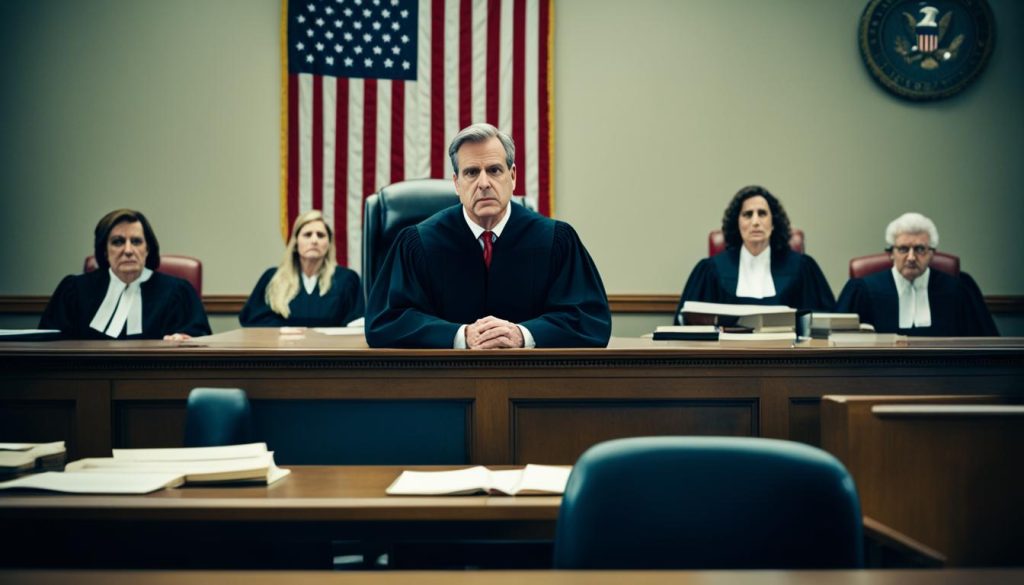
Conclusion
Building a solid criminal defense is a complex and multifaceted process, but it is essential for defendants facing criminal charges. By understanding the criminal justice system, securing effective legal representation, developing a comprehensive defense strategy, and navigating the courtroom and appeals process, defendants can increase their chances of achieving the best possible outcome in their cases. This article has provided a comprehensive overview of the key elements involved in building a solid criminal law defense, equipping you with the knowledge and tools necessary to protect your rights and defend yourself against criminal allegations.
Remember, a successful criminal defense often hinges on your ability to navigate the complex legal landscape, make informed decisions, and work closely with a skilled criminal defense attorney. By leveraging the strategies and insights presented in this article, you can take proactive steps to build a solid defense and increase your chances of a favorable outcome, whether that involves negotiating a plea bargain, presenting a compelling case in court, or pursuing an appeal.
Ultimately, building a solid criminal law defense is a critical process that requires diligence, perseverance, and a thorough understanding of the criminal justice system. By arming yourself with the knowledge and resources provided in this article, you can navigate the legal landscape with confidence and take the necessary steps to protect your rights and interests in the face of criminal charges.
FAQ
What is the importance of building a solid criminal defense?
What are the key components of the criminal justice system that defendants should understand?
Why is retaining a skilled criminal defense attorney essential?
What is the importance of the discovery process in building a criminal defense?
What are the key tactics for developing an effective defense strategy?
How can defendants navigate the courtroom effectively?
When might plea bargaining or alternative sentencing options be considered?
What are the grounds for appealing a conviction, and how does the appeals process work?
Source Links
- https://thenieveslawfirm.com/top-5-mistakes-criminal-defendants-make/
- https://www.hmichaelsteinberg.com/making-discovery-under-colorado-law-getting-the-police-reports.html
- https://www.fanneylaw.com/trial-tactics-for-criminal-charges-strategies-for-effective-defe.html
